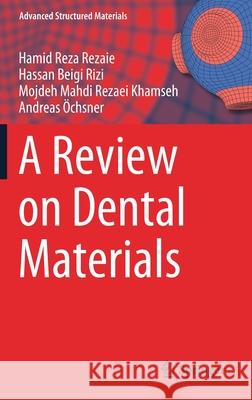A Review on Dental Materials » książka
topmenu
A Review on Dental Materials
ISBN-13: 9783030489304 / Angielski / Twarda / 2020 / 224 str.
A Review on Dental Materials
ISBN-13: 9783030489304 / Angielski / Twarda / 2020 / 224 str.
cena 603,81
(netto: 575,06 VAT: 5%)
Najniższa cena z 30 dni: 578,30
(netto: 575,06 VAT: 5%)
Najniższa cena z 30 dni: 578,30
Termin realizacji zamówienia:
ok. 16-18 dni roboczych.
ok. 16-18 dni roboczych.
Darmowa dostawa!
Kategorie:
Kategorie BISAC:
Wydawca:
Springer
Seria wydawnicza:
Język:
Angielski
ISBN-13:
9783030489304
Rok wydania:
2020
Wydanie:
2020
Numer serii:
000394261
Ilość stron:
224
Waga:
0.50 kg
Wymiary:
23.39 x 15.6 x 1.42
Oprawa:
Twarda
Wolumenów:
01
Dodatkowe informacje:
Wydanie ilustrowane











